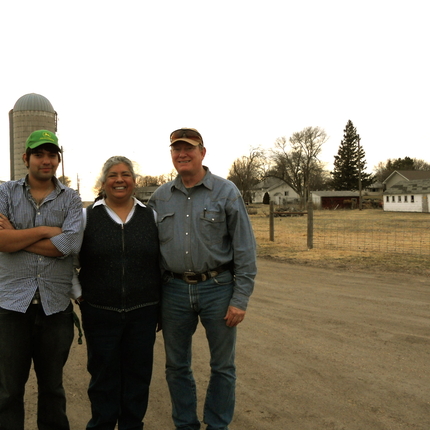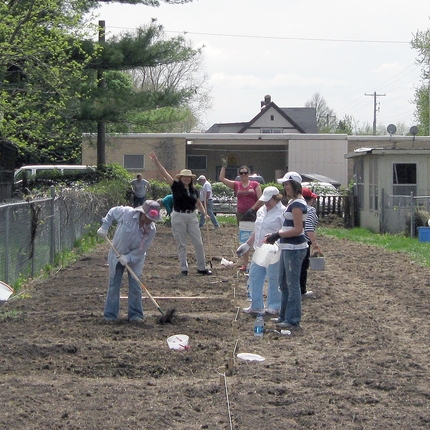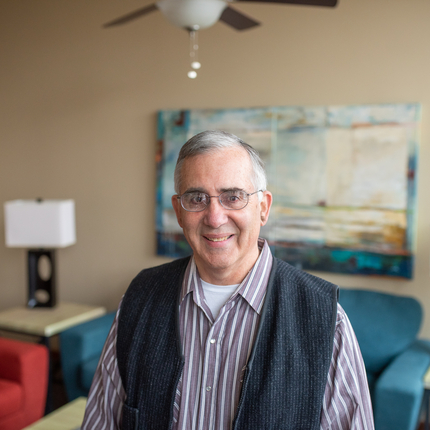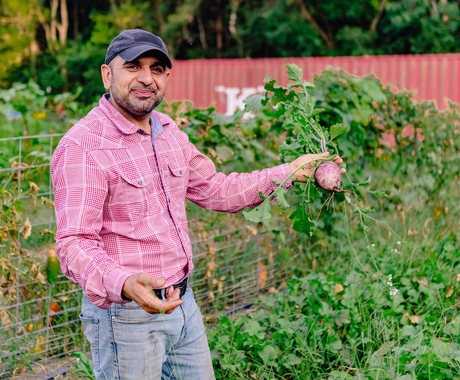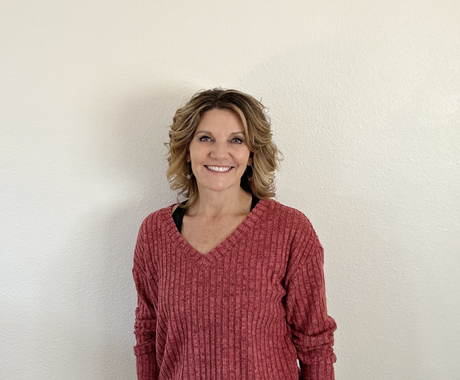Author note: This is the fourth in a series of five installments celebrating the Center for Rural Affairs’ 50-year anniversary.
Since 1973, one core tenet of the Center for Rural Affairs has been support for family farms and ranchers. This work is at the heart of rural America, and is a core component of the Center’s mission.
Wyatt Fraas, Farm & Community assistant director, has focused on farm and ranch work for more than half of the Center’s 50 years. The approach to these initiatives has stayed the same throughout the organization’s history, while the strategy has evolved.
“Our focus was first on resources and practices, then on markets, then on business planning, now on combining them all,” he said.
One reason the strategy has been adapted is external economic factors, including consolidation of input suppliers and crop buyers as well as farm size and changing markets.
“Small to medium-sized farmers and ranchers are stressed, so they seek alternatives to stay viable for now and for the next generations,” Wyatt said. “Market demand for locally grown and healthful food from known farmers spawned the current direct-sales marketplaces of farmers markets, pick-your-own, farm stands, etc. These support a greater number and diversity of small farmers than the previous generation or three.”
Changes have also occurred as a result of a new outlook.
“Idealistic young farmers who want to supply healthful food have helped diversify and expand the direct-to-customer marketplaces,” Wyatt said. “Their struggles to make a viable living from farm income have driven efforts by the Center and other organizations to better prepare them.”
To execute these projects, Wyatt and his team work directly with several audiences, which can feed ideas, examples, and people into the other Center initiatives, such as policy and lending. This direct work also introduces the Center to more people across the country.
“Our program work often directly exposes people to our values: the greater good, responsibility, participation in decision making, and access to economic opportunity,” Wyatt said. “'Being a good neighbor’ encapsulates many of the values and resonates with rural people.”
Farms need communities, and vice versa
Support for farmers and ranchers cannot be executed alone. The Center has expanded its scope of work to communities, for a good reason.
“Agriculture is a primary economic driver in most rural places, and it is dependent on service and supply businesses,” Wyatt said. “Communities need the people on farms and ranches to support civic organizations, schools, and churches. Many town businesses are dependent on the primary and secondary recirculation of agricultural money, which puts agriculture among the highest economic multipliers.”
Center staff has seen ways rural communities are fragile and has added work to address those.
“For example, agricultural consolidation has reduced the number of farms and ranches,” Wyatt said. “In addition, outmigration of youth and early career adults drains communities of the population they need to support these small towns.”
A lower population supports fewer businesses, and legacy businesses find it difficult to transition ownership to a younger generation. Once this occurs, a loss of key businesses and institutions (schools, groceries, clothing stores, medical facilities, etc.) reduce the attractiveness of a community to new residents, retirees, and young people who might want to live near family.
“The Center’s programs address these stress points by helping to strengthen existing businesses, establish new businesses, facilitate generational transfer, include junior and senior generations in town decision making, facilitate new American migration to communities, and create innovative ownership and management structures,” Wyatt said.
Wyatt’s journey through the Center
Wyatt was drawn to these types of Center work. In the early 1980s, he had recently graduated from Montana State University, and, while working temporary jobs, was checking the job boards. He had not worked for a nonprofit before, but an organization based in Nebraska caught his eye.
“The Center's focus on community, conservation, and land managers fit my career goals,” he said. “The Center’s search for a project manager to investigate beginning farmer startups aligned roughly with farmland conservation work I had done in Wisconsin, which apparently got me an interview.”
Wyatt started on that beginning farmer project, and throughout the years has worked on both economic and environmental aspects of farm and ranch practices, food systems, and community. Along with beginning farmer training and advising, agricultural projects have been targeted to women, Latinos, military veterans, and more, highlighting finances, market development, business planning, cooperatives, production practices, climate change, pollinator habitat, and alternative energy.
Food system work Wyatt has been involved with includes farm to school, Native American food access and business development, community gardens, farmers markets, and rural grocery support. In addition, he has had a hand in community-based art projects.
His most recent focus is lending for meat and poultry processing.
Project accomplishments alongside new and young staff have been his most fulfilling experiences over 30 years, he said. He cites work with former and current staff Rafael Martinez-Feria on Latino farmer research, Amy Radding on Native American and South Sioux City farmers market launches, Adele Phillips and Stephanie Kennedy on Latino community gardens in South Sioux City, Kirstin Bailey on multiple bee projects, and Meg Jackson on meat lending initiative development.
“Also, it has been exciting to help farmers reach goals, including a grazing group in southeast Nebraska, an organic market group in northeast Nebraska, and a grazing business,” Wyatt said.
Future plans for this work
While Wyatt likely won’t be at the Center for the entirety of the next 50 years, he keeps in mind future generations and forecasts work that is needed to continue to support family farms and ranches.
Future projects on the docket include more integration of community with farmers and ranchers as well as more integration of inclusion into agricultural work and broader community work.
Recently, staff has looked at food-based business support, which includes the Center’s newest initiatives of lending and participation in a multi-state program to support food businesses. This incorporates advising across a wide variety of businesses.
Another future focus is increasing the existing work alongside Tribes and widening the circle to include additional Tribes.
“We want to grow our Native community engagement more deeply in Nebraska, with businesses, housing, food access and sovereignty, and leadership development,” Wyatt said.
These projects and more will ensure the success of rural communities and the Center.
Feature photos: Two of the many project accomplishments that Wyatt Fraas has found fulfilling during his 30 years at the Center include Latino farmer research (top) and community gardens in South Sioux City (middle). Wyatt Fraas is in the bottom photo. | Center file photos. Wyatt photo by Kylie Kai

